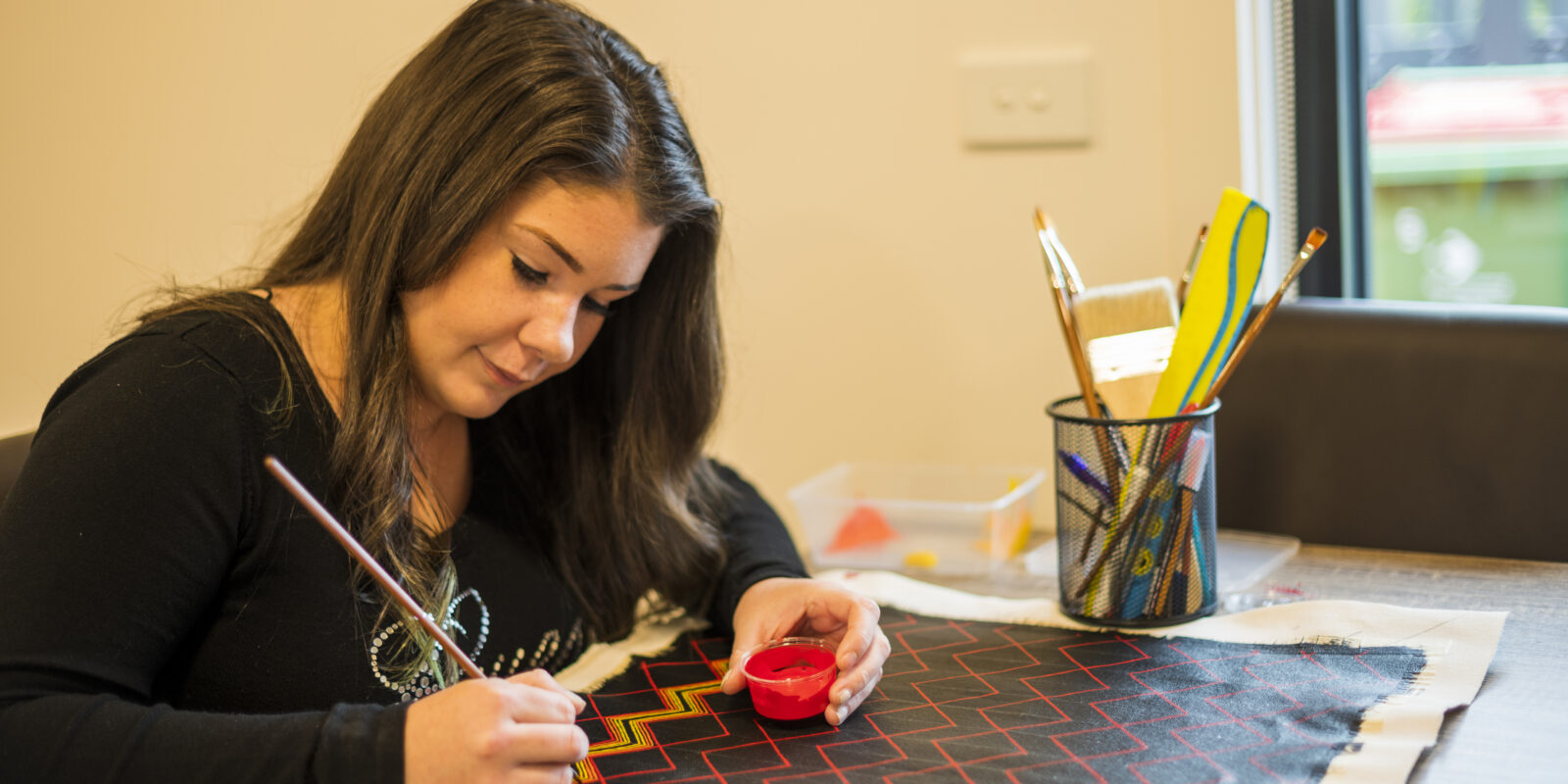
Proud Ngarrindjeri woman and Torch artist Flick Chafer-Smith told her story in a submission to the Yoorrook Justice Commission’s Inquiry into Housing and Homelessness. Flick was interviewed by Smart Justice for Women’s (SJFW) submission to Yoorrook about the experience of women leaving the prison system.
The submission investigates systemic injustices experienced by First Nations peoples concerning housing and homelessness. It focuses on the challenges faced by First Nations women who have interacted with the criminal legal system, including those recently released from prison. Flick’s story, presented in the submission, illustrates the link between housing instability and the criminalisation of First Nations women, including those who are survivors of family violence. Additionally, the submission outlines key principles that should guide the development of housing policy to address the high rates of homelessness and housing instability among First Nations women with involvement in the criminal legal system.
SJFW states that First Nations women are grossly over-represented in the criminal legal system. Across Australia, 33 per cent of women in prisons identify as Aboriginal or Torres Strait Islander. In Victoria, as of May 2023, there were 38 Aboriginal and Torres Strait Islander women imprisoned in Victoria, comprising 12 per cent of the total female population, despite Aboriginal or Torres Strait Islander women making up just one per cent of Victoria’s population overall. The high rates of First Nations women placed in custody represents a significant failure to reach the national Closing the Gap target of reducing the rate of incarceration by at least 15 per cent by 2031.
Flick had firsthand experience with the systemic injustices surrounding housing and homelessness. Struggling with drug and addiction issues from a young age, she faced frequent interactions with the police and lacked stable housing, making it difficult to find work. This led her into cycles of drug use, homelessness, and incarceration.
Despite being held on remand multiple times, Flick couldn’t access rehabilitative programs offered in prison, as they were only available for sentenced individuals. This made it challenging for her to break the cycles fueling her encounters with the criminal justice system.
After serving a three-year prison sentence, Flick applied for parole but was denied due to her homelessness. This led to an additional nine months in prison until appropriate housing became available. Eventually, she was offered a unit far from her support network, highlighting the challenges faced by formerly incarcerated individuals re-entering society.
Flick’s story underscores the difficulty of finding housing for women leaving prison. Now an advocate for reform, she emphasises the need for integrated services supporting people exiting prison with housing, employment, mental health, and addiction, especially for First Nations people, recognising their unique cultural dynamics and pathways in and out of prison.
Check out the latest works from artists like Flick in The Torch online gallery and read more about Flick’s journey in the paper and in her Artist Insight.